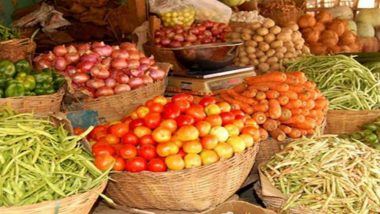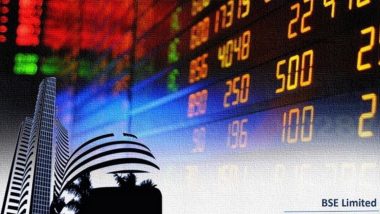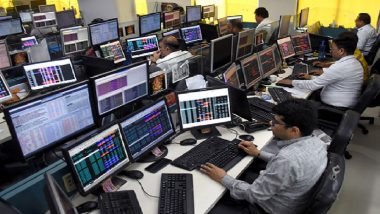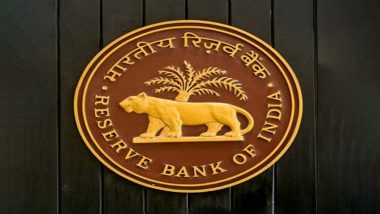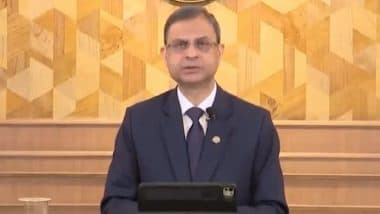Mumbai, February 5: The Reserve Bank on Friday projected retail inflation to be in 5-5.2 per cent range during the first half of the next fiscal year, expecting further softening of vegetables prices in near term.
Also, it has lowered the retail inflation forecast for the current January-March quarter of 2020-21 fiscal at 5.2 per cent. The Reserve Bank (RBI) has kept the key policy rate unchanged at 4 per cent, with an accommodative stance, so as to ensure that inflation remains well within the target, Governor Shaktikanta Das said while announcing the last monetary policy of 2020-21.
"The MPC (monetary policy committee) voted unanimously to leave the policy repo rate unchanged at 4 per cent. It also unanimously decided to continue with the accommodative stance of monetary policy as long as necessary...while ensuring that inflation remains within the target going forward," Das said. RBI Lowers Inflation Projection to 5.20% for Q4 FY21, Sees It Around 5% in H1 Next Fiscal.
The governor said the outlook on growth has improved significantly and inflation has returned within the tolerance band (of +/-4 per cent). Having breached the upper tolerance threshold (over 6 per cent) continuously since June last year, CPI inflation has come below 6 per cent in December for the first time in the post-lockdown period supported by favourable base effects and sharp fall in key vegetable prices, Das said in his statement.
Vegetables, he said, accounted for around 90 per cent of the decline in headline inflation during November and December. Acknowledging that price pressures may continue to persist in certain key food items, the RBI expects vegetable prices to remain soft in the near term due to higher fresh arrivals, active supply side interventions as well as concerted policy actions by both the central and state governments among others.
Mentioning that petroleum prices have reached historic highs due to surge in international crude oil rates and high indirect taxes, both by the Centre and states, as well as sharp increase in industrial raw material resulting in broad-based increase in prices of services and manufacturing in recent months, Das said it was critical to ensure that the ongoing cost build-up does not escalate further.
"Taking into consideration all these factors, the projection for CPI inflation has been revised to 5.2 per cent for Q4:2020-21, 5.2 per cent to 5.0 per cent in H1:2021-22 and 4.3 per cent for Q3:2021-22, with risks broadly balanced," Das said.
Going ahead, factors that could shape the food inflation trajectory in coming months including likely bumper kharif (summer) harvest arrivals in markets, rising prospects of a good rabi crop (winter crop), larger winter supplies of key vegetables and softer poultry demand on fears of avian flu are all indicative of a stable near-term outlook, the governor said. By March 2021, the government would be reviewing the inflation target for the next five years, he said.
"The experience with successfully maintaining price stability and the gains in credibility for monetary policy since the institution of the inflation targeting framework, barring the COVID-19 period, needs to be reinforced in the coming years even as we exit the pandemic and seek to exploit the opportunities of the post-COVID world," Das said.
He further said that price stability is the foundation on which the economy can strive to reach its potential in a virtuous cycle of higher financial savings and investment; reduced uncertainties for firms in investment and wage decisions; reduced term and risk premia in financial markets; and increased external competitiveness. RBI Monetary Policy: Repo & Reverse Repo Rate Unchanged, GDP Growth Projected at 10.5% in FY21-22.
Das said given that inflation has returned within the tolerance band, the MPC judged that the need of the hour is to continue to support growth, assuage the impact of COVID-19 and return the economy to a higher growth trajectory.
The RBI Governor hoped that in 2021-22, the country would undo the damage that COVID-19 has inflicted on the economy.
"...going forward, the Indian economy is poised to move in only one direction and that is upwards," he said. The six-member Monetary Policy Committee (MPC) of the RBI met on February 3-5, 2021 and deliberated on current and evolving macroeconomic and financial developments, both domestic and global, to arrive on its policy decision.













 Quickly
Quickly








